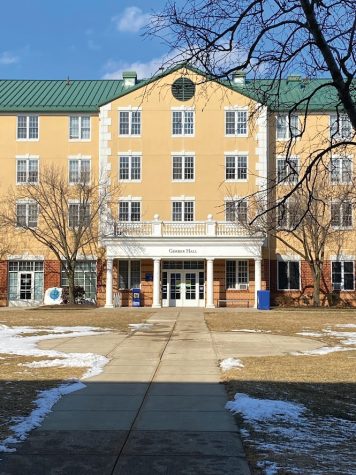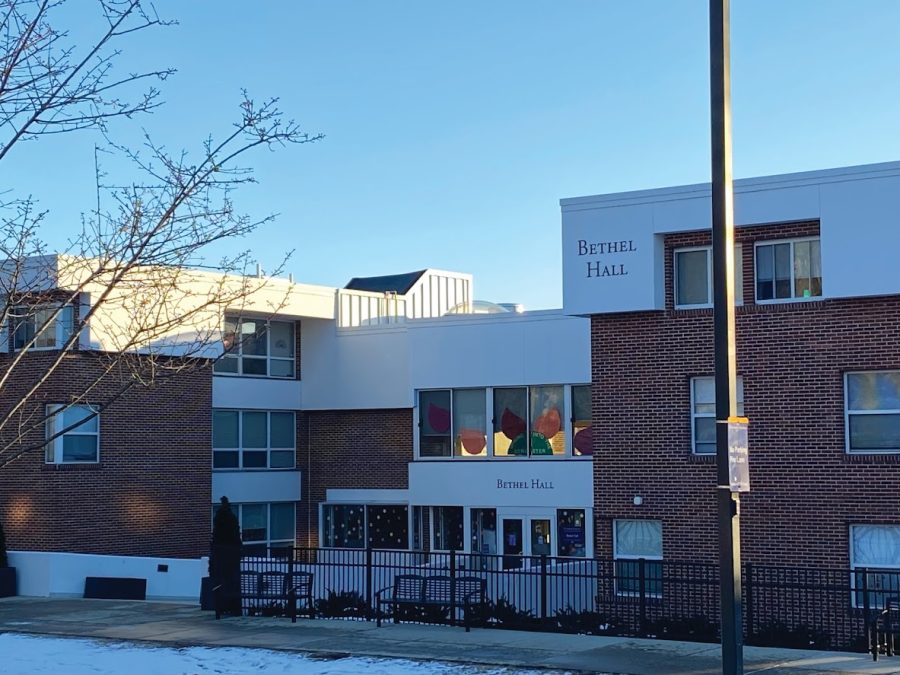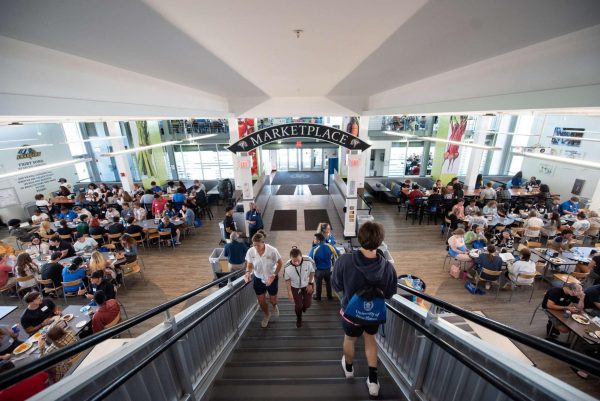Resident or commuter: Students share their experiences
Photo courtesy of Ebube Emelif
The outside of Bethel Hall, West Haven.
One of the most challenging decisions after receiving that long-awaited high school diploma is making a plan for the future. A significant decision that can cause stress for local incoming freshmen and transfer students is deciding whether to reside on campus, or commute.
Sophomore psychology major Aryana Agili said about her campus experience as a residential student, “I have never experienced a boring day. Every single day has always left me with a story to tell, some days even having five different stories.”
Sophomore criminal justice major Lexie Lajoe, said living on campus helped her gain new skills, “I have had the chance to experience living away from home and the growth that has allowed for.”
A primary concern for most students when it comes to being a resident surrounds COVID-19 restrictions. Agili spoke about the impact that COVID-19 has had on her resident experience.
“I’ve only been here for two years which hasn’t allowed me to have a COVID-19-free experience in my dorm,” she said. “Sometimes, restrictions make it so hard to see other friends, and especially my boyfriend.”
Although Agili faced those setbacks as a resident, she said she remained resilient. “Even with COVID-19 restrictions, I can easily say I’ll leave this school with lifelong friends.”
Agili said that despite the setbacks with the pandemic, she has been able to get involved on campus, supporting several clubs such as the American Criminal Justice Association, Alpha Lambda Delta and club tennis.
Along with COVID-19 affecting residents, another issue that this population faces is their lack of confidence when meeting new friends; this can especially be nerve wracking for incoming freshman and transfer students.
“Growing confidence was hard at first,” Lajoe said. “You have to interact with a lot of new people on a daily basis. But it has been easy to get involved on campus. You can be as involved as much or as little as you want here.”
One thing that Lajoe wants to see the university improve at is spreading awareness about resources on campus for incoming freshman residents. “The university could do better at clarifying the rules and resources, so they are easier accessed.” She said that with an increase of available resources, the incoming freshman along with the rest of the student body will feel less stressed about their transition to campus.

Emiliano Vega, a junior majoring in computer science, says that his experience as a commuter “has been mostly good, but it could be better.” He said that one of the most positive experiences he has from being a commuter is getting to meet other commuters at the Bartels Student Activity Center on campus.
Sophomore criminal justice major Juliana Proestakis, said being a commuter has benefited her financially. “I don’t need to pay for housing which saves me and my family a lot of money we don’t need to be spending when I live so close to school.”
Some of the challenges that students may face if they choose to commute is that it can be difficult for them to see their residential friends at the university, Proestakis said, since they have to follow certain rules when entering dorm buildings.
Some students agreed the university could make changes when it comes to supporting commuters. Vega said that, “As a commuter, getting involved on campus [these] last two years was difficult mostly because I didn’t really know anyone outside of my classes.”
“The University should hold more events for commuters to meet each other,” Proestakis said.
She also shared an idea about the dorm policy, saying, “I would say to make it a better experience for commuters to feel more at home, is to allow commuters to enter dorm buildings freely so this would make it easier for commuters to hang out with their friends.”







